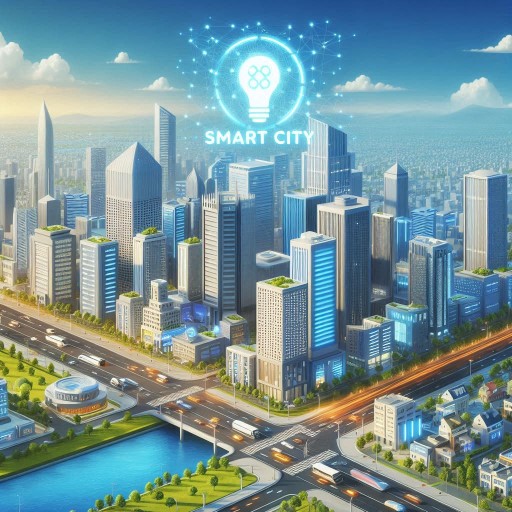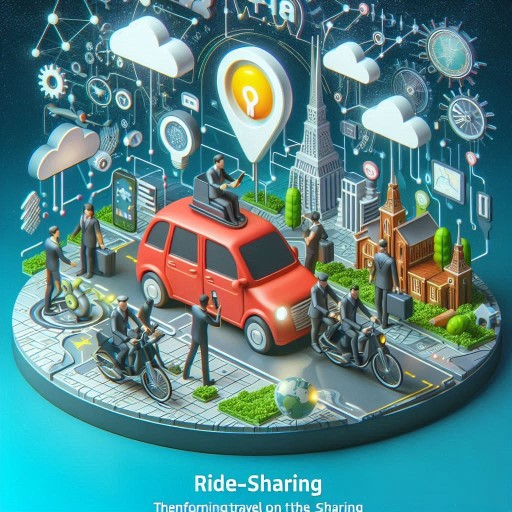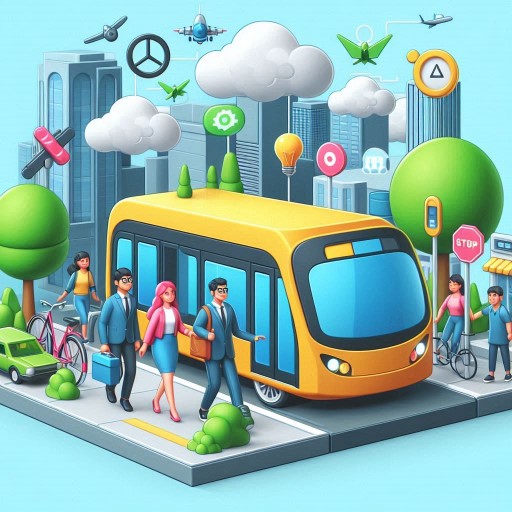TechTrend4u – In an increasingly advanced digital era, the concept of “Smart Cities” is becoming an increasingly relevant and important topic. Smart cities are not only about the adoption of advanced technologies, but also about creating a better, efficient and sustainable environment for its residents. This article will discuss what a smart city is, the technologies that support it, the benefits it offers, as well as some examples of implementation in the world.

What is a Smart City?
Definition of Smart City
A smart city is a city that uses digital technology and data to improve quality of life, optimize city operations, and ensure environmental sustainability. It involves the integration of information, communication, and internet of things (IoT) technologies to manage city assets more efficiently, including transportation systems, energy resources, water, and other public services.
Key Elements of Smart Cities
Some of the key elements in smart city development include:
- Technology Infrastructure: Advanced and secure communication networks.
- Data and Analytics: Real-time data collection and analysis for better decision-making.
- Environmental Sustainability: Use of renewable energy and efficient resource management systems.
- Citizen Participation: Community engagement in decision-making processes through digital platforms.
Read more: The Future of Mobility: A Blend of Innovation and Sustainability
Smart City Supporting Technology
Internet of Things (IoT)
IoT is a core technology in smart cities that allows devices and sensors to connect with each other and share data. Examples of the use of IoT in smart cities include traffic sensors that adjust traffic lights based on road conditions, as well as automated waste management that notifies when trash bins are full.
Big Data and Analytics
Through the use of big data, smart cities are able to gather information from a variety of sources, including IoT sensors, mobile devices, and social media platforms. By analyzing this data, they can gain insights into citizens’ behavioral patterns, identify the city’s needs, and pinpoint issues that require attention, such as traffic congestion and inefficient energy usage. Consequently, this comprehensive data analysis helps in addressing and resolving urban challenges more effectively.
Artificial Intelligence (AI)
AI is used to make smarter and more predictive decisions across different sectors of the city. For example, AI can be used to predict energy demand based on weather, regulate transportation systems to reduce congestion, or identify potential public safety risks.
Renewable Energy
Smart cities rely heavily on sustainable energy sources. The use of solar panels, wind turbines, and other renewable energy technologies is an integral part of smart city strategies to reduce carbon footprint and improve energy efficiency.
Read more: Artificial Intelligence: The Next Industrial Revolution?
Benefits of Smart Cities
1. Improved Quality of Life
With better public services, efficient infrastructure, and a cleaner environment, the quality of life for citizens in smart cities improves. For example, digitally connected healthcare services enable faster and more efficient medical treatment.
2. Operational Efficiency
Smart cities enable more efficient use of resources. For example, with automated traffic management, travel time can be shortened, fuel consumption reduced, and air pollution decreased.
3. Environmental Sustainability
Smart cities contribute to environmental sustainability by reducing carbon emissions, minimizing waste, and using renewable energy. This helps cities become more environmentally friendly and face the challenges of climate change.
4. Security and Resilience
With smart surveillance technology and data analytics in place, smart cities can improve public safety and respond faster to natural disasters or other incidents. Early warning systems linked to environmental sensors allow cities to be better prepared for risks.
Read more: Smart Public Transportation: More Efficient and Convenient
Challenges in Building Smart Cities
Adequate Infrastructure
Building smart cities requires advanced and integrated infrastructure. However, many cities, especially in developing countries, still face challenges in building basic infrastructure such as electricity and stable internet networks.
Data Security and Privacy
As more data is collected and analyzed, the issue of data security and privacy becomes increasingly important. Smart cities must have strong policies and technologies in place to protect citizens’ data from unauthorized access and cyber-attacks.
Financing and Investment
The implementation of smart technologies requires substantial investment. City governments often have to find ways to finance these projects, whether through public-private partnerships, subsidies, or other forms of financing.
Read more: Internet of Things: Making the World Smarter
Smart City Implementation Examples
Barcelona, Spain
Barcelona is one of the most successful examples of a smart city in Europe. The city has implemented various smart technologies, such as a smart parking system that notifies drivers of parking availability, efficient water management through IoT sensors, and an extensive public Wi-Fi network.
Songdo, South Korea
Songdo is a city designed from the ground up as a smart city. The entire city is equipped with high-tech infrastructure, including an automated public transportation network, energy-efficient buildings, and an automated waste management system. All these facilities are controlled through a single smart operation center.
Jakarta, Indonesia
Jakarta is transitioning towards a smart city with the implementation of various technology initiatives, such as Jakarta Smart City which uses big data and analytics to manage traffic, monitor air pollution, and improve public services. The Qlue app, which allows citizens to report city problems directly, is one concrete example of this effort.
Singapore: An Integrated Smart City
Singapore has long been recognized as a leader in the implementation of smart city concepts. The city-state uses advanced technology in almost all aspects of citizens’ lives, from transportation to natural resource management. Singapore utilizes data analytics and artificial intelligence to efficiently manage traffic, energy, and public safety.
The Future of Smart Cities
Public-Private Collaboration
The future of smart cities will increasingly depend on collaboration between governments, the private sector and citizens. Innovation and investment from the private sector will be key in developing new technologies, while the government will play a role in creating regulations and supportive infrastructure.
Development of AI and IoT Technology
With the development of artificial intelligence and IoT, smart cities will become increasingly autonomous and adaptive. These technologies will enable cities to manage resources more efficiently, improve response to changing conditions, and provide better services to citizens.
Focus on Sustainability
Sustainability issues will continue to be a key focus in smart city development. With the increasing challenges of climate change, smart cities will increasingly focus on reducing carbon emissions, better resource management, and creating a healthier living environment.
Read more: Technology Revolution in 2025
Conclusion
Smart cities are the future of cities that combine advanced technology with environmental sustainability and operational efficiency. While it faces various challenges, including infrastructure, data security, and financing, the benefits offered by smart cities are immense.
Through the implementation of technologies such as IoT, AI, and big data, smart cities can improve the quality of life of its citizens, reduce environmental impact, and create safer and more comfortable cities to live in. With successful examples like Barcelona, Songdo, and Jakarta, other cities around the world can learn and apply smart technologies to create a better future for all.



